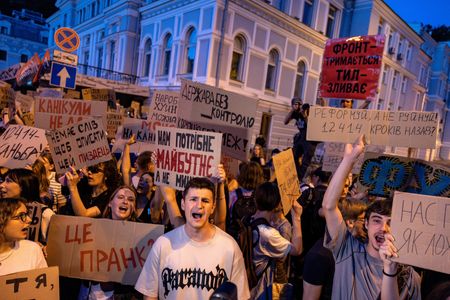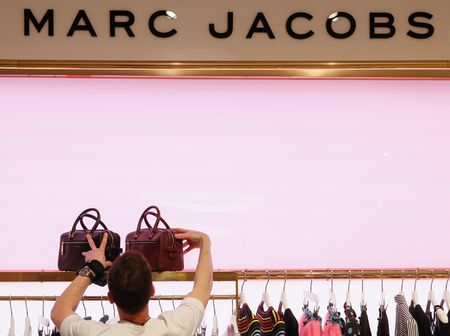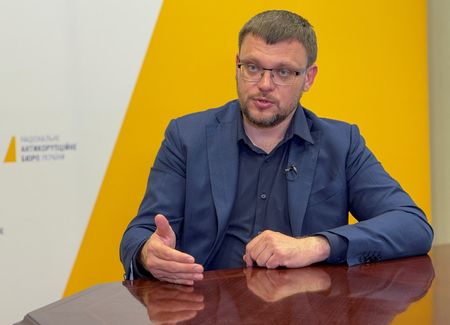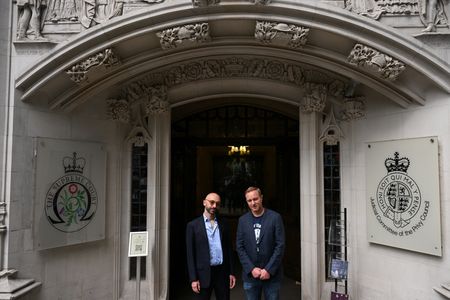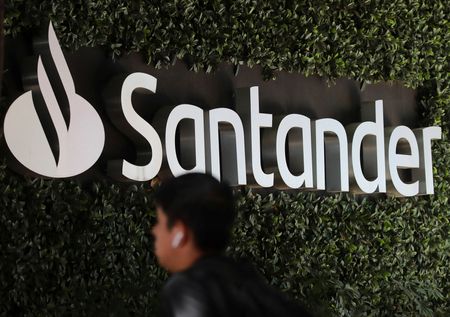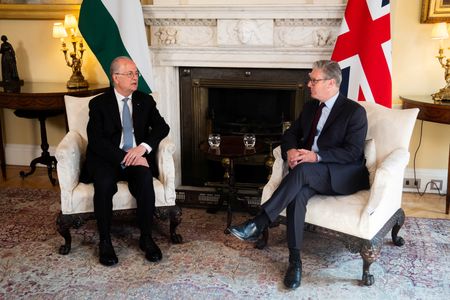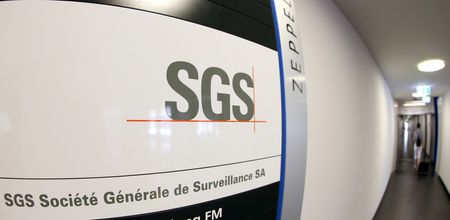By Dan Peleschuk
KYIV (Reuters) -Polina Morhun was just a child when an uprising toppled a pro-Russian president and set Ukraine on a Western course in 2014, yet she and thousands of other young people in Kyiv are at the forefront of protests to preserve that legacy.
Their energy has created a festival-like atmosphere tinged with focused anger outside the office of President Volodymyr Zelenskiy, whose image as a tireless wartime leader has been tarnished by his moves to curb anti-corruption agencies.
“I think now that I’m 18, I have a certain responsibility,” Morhun, a native of eastern Ukraine’s Donetsk, said late on Wednesday amid the din of a second night of the biggest protests since Russia’s full-scale invasion in 2022.
Morhun and her peers, who have come of age in an era of both visa-free travel to Europe and full-scale war, are angry about restrictions on agencies set up to stamp out graft, a key precondition for Ukraine to one day join the EU.
The 2014 Maidan revolution – named after the Kyiv square where much larger rallies took place – was sparked by persistent post-communist misrule and paved the way for reforms bolstered by Western financial and political support.
Fighting corruption is seen as central to erasing a legacy of Russian domination and justifying the sacrifices of Ukrainian forces struggling to fend off Moscow’s army on the battlefield.
Zelenskiy appeared to back down on Wednesday, vowing to retain the independence of the two anti-corruption agencies and saying protests across Ukraine had “not fallen on deaf ears”.
Mass protests are banned under martial law and Ukrainians have been careful to project unity during the conflict, now in its fourth year. This week’s demonstrations, which included smaller rallies in other big cities, including Lviv in the west and Kharkiv in the east, were a far cry from the protests of 2014 which involved hundreds of thousands of people.
But demonstrators like 25-year-old Alik Vovkotrub, who said seeing the Maidan protests as high school student “changed my life”, believe it is critical to keep Ukraine’s leaders in line.
“Those in power… are too far from the people,” said Vovkotrub, sporting a coiffed moustache matching his Cossack-style surname.
‘WE NEED FAIRNESS’
Morhun, the 18-year-old whose family fled Donetsk after Russia-backed separatists captured the city in 2014, said young people who stayed in Ukraine after Russia’s invasion share a sense of collective ownership.
“They want to build their future in Ukraine with their own hands,” she told Reuters.
As he vowed to submit new legislation to parliament addressing the protesters’ concerns, Zelenskiy on Wednesday echoed his earlier justification of Tuesday’s restrictions by saying “there will be no Russian influence” in law enforcement.
On Monday, security forces had arrested two anti-corruption officials on suspicion of ties to Russia and launched sweeping searches of other employees.
Critics said the measures went too far and looked like political pressure on prized agencies that have brought charges against lawmakers and senior government officials.
As Zelenskiy acknowledged their concerns during his regular evening address, demonstrators flooded a square below the presidential administration, chanting “Shame!”.
“There was no clarity in his explanations … about why this even needed to be done,” said Maryna Mykhalchuk, 26, who described the move as “a knife in the back”.
Mykhalchuk said she had friends killed in the war and plans to join the army herself. She added that Zelenskiy’s anti-Russia argument was undermined by the fact that lawmakers from a former parliament faction perceived as pro-Russian had supported the measures.
“We need fairness, we need our free state, and we need for it to flourish,” said Vanya Vinska, a 19-year-old university student.
“And to stand by while such historic events are taking place is impossible, no matter what age.”
(Additional reporting by Vladyslav Smilianets; Edited by Mike Collett-White and Philippa Fletcher)

